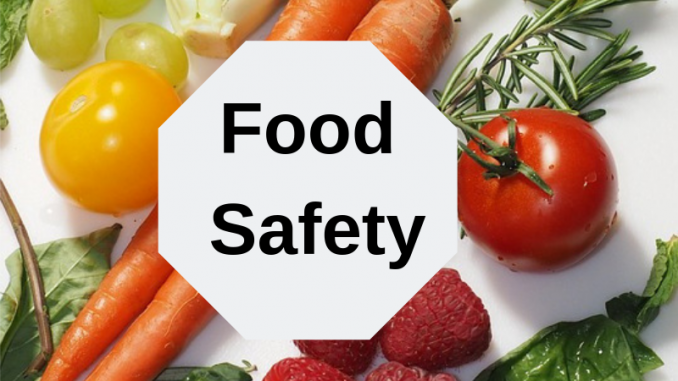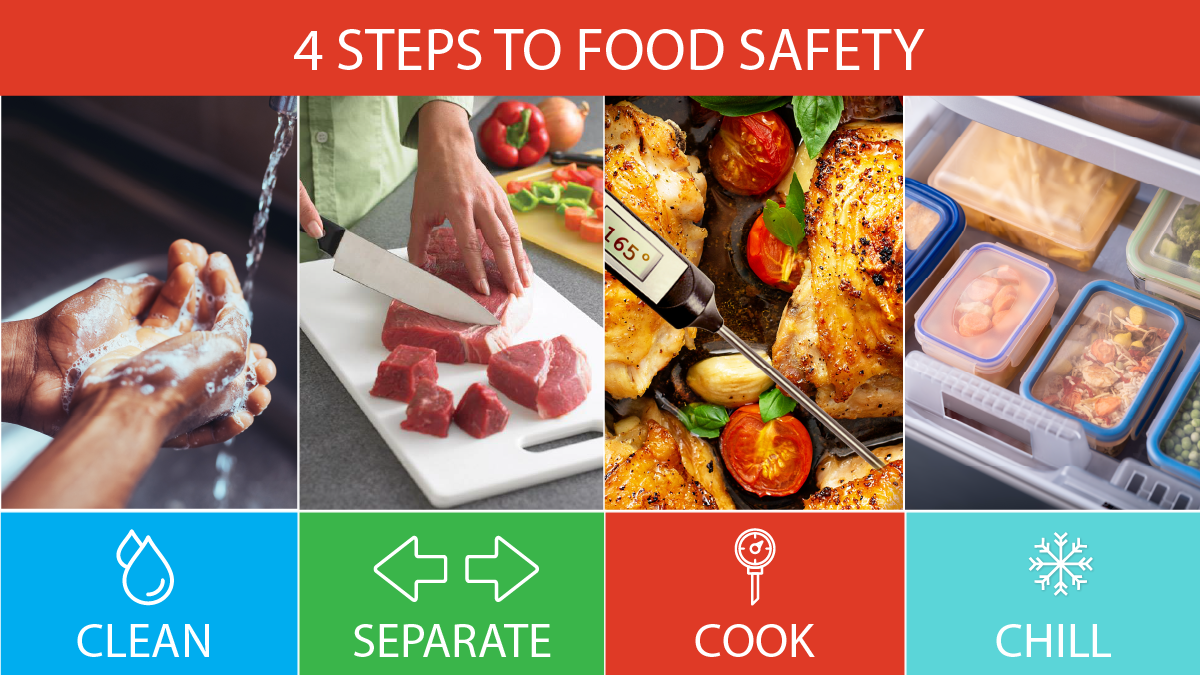Back to: Pre Vocational Studies Primary 5
Welcome to class!
Hello, my health-conscious student! I’m so happy to have you back for another very important lesson. Today, we’re going to talk about “food safety.” This means keeping food safe to eat by preventing it from becoming contaminated with germs or harmful substances. It’s like washing your hands before eating or keeping your surroundings clean to avoid getting sick. Let’s begin!
Food Safety

Food safety is very important because eating contaminated food can cause food poisoning, which can make you feel very sick.
Here are some important food safety practices:

- Cleanliness (Clean):
- Wash your hands: Wash your hands thoroughly with soap and water before handling food, after using the bathroom, and after touching raw meat, poultry, or fish.
- Clean surfaces: Clean countertops, cutting boards, and utensils with hot, soapy water after each use.
- Wash fruits and vegetables: Wash fruits and vegetables thoroughly under running water before eating or cooking them.
- Keep pets away from food preparation areas: Pets can carry germs that can contaminate food.
- Separation (Separate):
- Separate raw and cooked foods: Keep raw meat, poultry, and fish separate from other foods to prevent cross-contamination. This means using different cutting boards and utensils for raw and cooked foods.
- Store raw meat, poultry, and fish on the bottom shelf of the refrigerator: This prevents their juices from dripping onto other foods.
- Cooking (Cook):
- Cook food thoroughly: Cook food to the proper temperature to kill harmful bacteria. Use a food thermometer to check the temperature of meat, poultry, and fish.
- Reheat leftovers thoroughly: Reheat leftovers to a safe temperature before eating them.
- Chilling (Chill):
- Refrigerate perishable foods promptly: Refrigerate perishable foods within two hours of cooking or purchasing them.
- Don’t thaw food at room temperature: Thaw food in the refrigerator, microwave, or in cold water.
Other Important Food Safety Tips:
- Check expiration dates: Pay attention to expiration dates on food packages and don’t eat food that has expired.
- Store food properly: Store food in airtight containers in the refrigerator or freezer.
- Avoid eating food from damaged cans: Don’t eat food from cans that are dented, bulging, or leaking.
- Use safe water: Use clean, safe water for cooking and drinking.
Let’s use some examples:
- When preparing chicken, use a separate cutting board for the raw chicken and another cutting board for the vegetables.
- Cook chicken thoroughly until it reaches an internal temperature of 165°F (74°C).
- Refrigerate leftover chicken within two hours of cooking it.
So, to summarize, food safety is about keeping food safe to eat by preventing contamination and following proper handling, cooking, and storage practices.
Evaluation
- Can you name the four main principles of food safety (Clean, Separate, Cook, Chill)?
- Can you explain why it’s important to wash your hands before handling food?
Excellent! You’re doing a fantastic job! I’m so proud of your learning.
